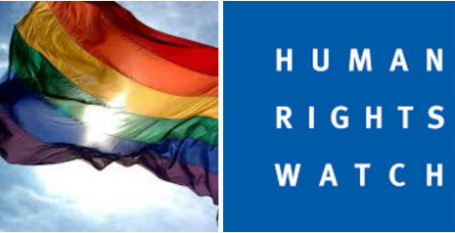In their annual report, HRW compiled the state of human rights around the globe in 2016. We’ve summed up the march towards LGBT equality in Asia, below.
India
In February 2016, the Supreme Court of India allowed a challenge to section 377 of the penal code to proceed, referring the case to a five-judge bench. The colonial-era provision, which the court had upheld in 2013, criminalizes same-sex relations between adults.
In June, several well-known LGBT professionals filed a petition in Supreme Court arguing that section 377 violates the right to life and personal liberty. In August, the government introduced a new bill in parliament on the rights of transgender persons. The bill was flawed, however, by provisions that were inconsistent with the 2014 Supreme Court ruling that recognized transgender individuals as a third gender and found them eligible for quotas in jobs and education.
Indonesia
Starting in January 2016, high-ranking Indonesian officials made a series of vitriolic anti-LGBT statements and policy pronouncements, fueling increased threats and at times violent attacks on LGBT activists and individuals, primarily by Islamist militants. In some cases, the threats and violence occurred in the presence, and with the tacit support, of government officials or security forces. State institutions, including the National Broadcasting Commission and the National Child Protection Commission, issued censorship directives banning information and broadcasts that portrayed the lives of LGBT people as “normal” as well as so-called propaganda about LGBT lives. Ministries proposed discriminatory and regressive anti-LGBT laws.
In July and August, the Constitutional Court heard a petition that proposed amending the criminal code to criminalize sex outside of marriage and same-sex sexual relations. During the initial hearings, the petitioners—led by a group called the Family Love Alliance—put forward ill-informed and bigoted testimony similar to the anti-LGBT rhetoric espoused by Indonesian officials and politicians earlier in the year. The government, the respondent in the case, said criminalizing sex out of wedlock would make “the sinner a criminal, and the government authoritarian,” a view echoed in testimony by the National Commission on Violence Against Women and other groups opposed to the petition. At time of writing the court had not yet ruled on the petition.
Singapore
The rights of Singapore’s LGBT community are severely restricted. Sexual relations between two male persons remains a criminal offense, and there are no legal protections against discrimination on the basis of sexual orientation or gender identity. The Media Development Authority effectively prohibits all positive depictions of LGBT lives on television or radio.
The annual Pink Dot Festival in support of LGBT rights celebrated its eighth year in Hong Lim Park in June 2016, supported by the sponsorship of corporations including Google, Barclays, J.P. Morgan, Goldman Sachs, BP, Bloomberg, Twitter, Apple, and Facebook. A few days after the event, the Ministry of Home Affairs warned multinational companies to stop funding the event, saying such support constitutes “foreign interference” with domestic affairs. In October, the Ministry of Home Affairs announced that, under newly promulgated rules, any entity that is not incorporated in Singapore and does not have a majority of Singapore citizens on its board is now required to apply for a permit to sponsor an event in Hong Lim Park.
Sri Lanka
State and non-state discrimination and abuses against the lesbian, gay, bisexual, transgender, and intersex (LGBTI) population persist. Sections 365 and 365A of the Sri Lankan Penal Code prohibit “carnal knowledge against the order of nature” and “gross indecency,” commonly understood in Sri Lanka to criminalize all same-sex relations between consenting adults. Sri Lankan law does not specifically criminalize transgender or intersex people. But no laws ensure that their rights are protected, and police have used several 557 HUMAN RIGHTS WATCH WORLD REPORT 2017 558 criminal offenses and regulations to target LGBTI people, particularly transgender women and men who have sex with men (MSM) involved in sex work.
These include a law against “cheat[ing] by personation,” and the vaguely worded Vagrants’ Ordinance, which prohibits soliciting or committing acts of “gross indecency,” or being “incorrigible rogues” procuring “illicit or unnatural intercourse.” Some trans women and MSM said that repeated harassment by police, including instances of arbitrary detention and mistreatment, had eroded their trust in Sri Lankan authorities, and made it unlikely that they would report a crime. The community also reported abuse and harassment at the hands of medical authorities, leading many transgender people to self-medicate rather than seeking professional assistance.
Vietnam
In November 2015, the National Assembly approved a bill to legalize sex reassignment surgery and to introduce the right to legal gender recognition for transgender people who have undergone such surgery. The law allows people who wish to undergo gender affirming surgeries to do so in Vietnam rather than abroad, and to change the gender marker on official documents—a small, but significant step toward recognizing transgender people’s rights. A UNESCO study highlighted bullying—usually in the form of verbal insults from peers and teachers—of lesbian, gay, bisexual, and transgender (LGBT) students in Vietnam’s schools.

